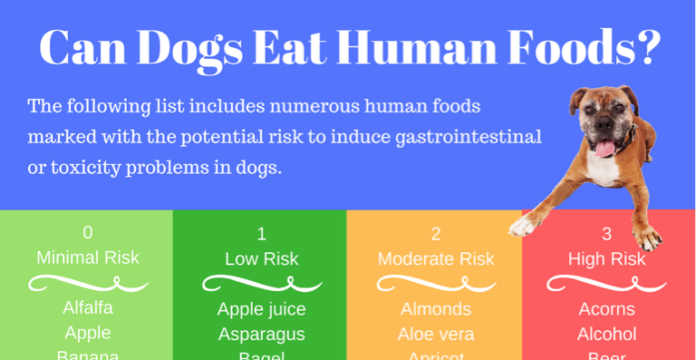As a new pet parent, you might wonder when can puppies eat human food safely. The transition from mother’s milk to solid food is a crucial phase in a puppy’s development, and introducing human food requires careful consideration and timing. Let’s dive into this comprehensive guide to ensure your furry friend’s healthy dietary journey.
The Right Time to Introduce Human Food
Generally puppies can start sampling certain human foods around 8-12 weeks of age after they’ve been fully weaned from their mother’s milk. However, this should be done gradually and with extreme caution. For more detailed information about puppy care and development stages, check out our dog care guides.
Understanding the Weaning Process
The weaning process is crucial for puppies’ development. During this time:- 3-4 weeks: Begin transitioning from mother’s milk- 6-8 weeks: Mostly eating puppy food- 8-12 weeks: Can start introducing small amounts of safe human foods
Safe Human Foods for Puppies
When introducing human food to your puppy’s diet, start with these safe options:
-
Plain Cooked Proteins
- Chicken (skinless, boneless)
- Turkey
- Lean beef
- Fish (deboned)
-
Healthy Vegetables
- Carrots (steamed)
- Sweet potatoes (cooked)
- Green beans
- Pumpkin (plain, cooked)
-
Safe Fruits
- Apple slices (no seeds)
- Bananas (in moderation)
- Blueberries
- Watermelon (no seeds)
Foods to Avoid
Never feed your puppy these dangerous human foods:- Chocolate- Grapes and raisins- Onions and garlic- Avocados- Macadamia nuts- Xylitol-containing products
Best Practices for Feeding Human Food
-
Start Small
- Begin with tiny portions
- Watch for adverse reactions
- Introduce one new food at a time
-
Proper Preparation
- No seasoning or spices
- Cook thoroughly
- Cut into small, manageable pieces
-
Portion Control
- Human food should not exceed 10% of daily intake
- Maintain primary puppy food as the main diet
- Consider treats for training purposes
Signs Your Puppy is Ready for Human Food
Look for these indicators:- Successfully weaned from mother’s milk- Eating puppy food consistently- Good digestive health- At least 8 weeks old
Expert Tips for Transitioning
At Pet like boss, we recommend these tips for a smooth transition:
-
Consult Your Vet
- Get professional approval
- Discuss specific dietary needs
- Address health concerns
-
Keep a Food Journal
- Track new foods introduced
- Note any reactions
- Monitor portion sizes
-
Maintain Consistency
- Regular feeding schedule
- Balanced nutrition
- Gradual changes
Common Mistakes to Avoid
-
Rushing the Process
- Don’t introduce too many foods at once
- Avoid sudden dietary changes
- Be patient with the transition
-
Overfeeding
- Stick to recommended portions
- Avoid table scraps
- Maintain healthy weight
-
Poor Food Choices
- Skip processed foods
- Avoid high-fat options
- Stay away from sugary treats
Special Considerations
Health Conditions
Some puppies may have specific dietary restrictions due to:- Food allergies- Sensitive stomachs- Genetic conditions- Medical issues
Breed-Specific Needs
Different breeds may have varying nutritional requirements:- Small breeds: Smaller, more frequent meals- Large breeds: Controlled growth diet- Working breeds: Higher protein needs
Healthy Human Food Recipes for Puppies
Basic Chicken and Rice
- 1 cup cooked plain chicken
- 1/2 cup cooked white rice
- 1/4 cup cooked carrotsInstructions:
- Cook chicken thoroughly
- Prepare rice without seasoning
- Steam carrots until soft
- Mix ingredients and serve when cool
Puppy Training Treats
- Cooked sweet potato chunks
- Small pieces of plain cooked chicken
- Tiny apple slicesInstructions:
- Cut ingredients into small pieces
- Store in airtight container
- Use within 3 days
-
Health Benefits
- Improved nutrition
- Better digestion
- Stronger immune system
-
Behavioral Advantages
- Better eating habits
- Reduced food aggression
- Enhanced training response
When to Seek Veterinary Help
Contact your vet if you notice:- Vomiting or diarrhea- Allergic reactions- Loss of appetite- Unusual behavior
Final Thoughts
Understanding when puppies can eat human food is crucial for their health and development. Remember to:- Start slowly- Choose safe foods- Monitor reactions- Maintain proper portions
By following these guidelines and consulting with your veterinarian, you can safely introduce human food to your puppy’s diet while ensuring their nutritional needs are met.
Remember, every puppy is unique, so what works for one might not work for another. Always observe your puppy’s response to new foods and adjust accordingly. For more detailed information about puppy care and nutrition, visit Pet like boss for expert advice and guidance.












